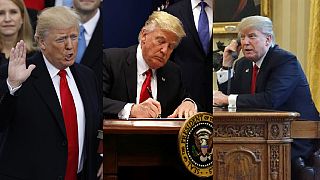USA
The Supreme Court of the United States on Monday partially lifted an injunction against the travel bans issued by President Donald Trump.
The apex court’s decision allows the travel ban to take effect but stated that it will listen to the substantive case in October this year.
The order bans citizens of six Muslim-majority countries from entering the United States. Three African countries were affected by the order. Libya, Sudan and Somalia. The other three were Syria, Yemen and Iraq.
Till date, Trump had signed two separate orders, but both had been suspended by lower courts forcing the case to be taken to the apex court.
The second order called for 90-day ban on nationals of the affected countries seeking to enter the US. The second order also removed Iraq from the original list of seven countries.
It also introduces a 120-day ban on all refugees arriving in the US, a move meant to allow Washington to implement tighter vetting procedures.
The Organization of Islamic Cooperation (OIC) in March this year slammed the earlier order describing it as “selective and discriminatory.” The OIC said it was of the view that the ban will further complicate the grave situation that refugees find themselves.
OIC is the second largest inter-governmental organization after the United Nations. It has 56 other member states across the world. All the affected countries belong to the bloc. The Gambia is set to host the next summit of the body.













01:35
US Envoy: No political will to end Sudan's war
01:30
Gaza war: What's next after new US veto on ceasefire draft resolution?
Go to video
US vetoes UN resolution demanding a cease-fire in Gaza for 4th time
01:49
ICC says it has uncovered evidence of war crimes in Libya
01:58
Women's health advocates in Africa worry Trump will cut funds for birth control
02:09
Russia vetoes UN resolution calling for immediate cease-fire in Sudan